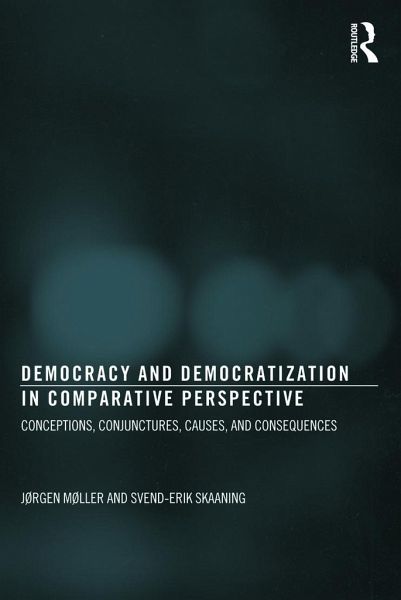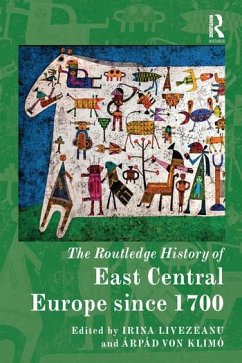
Democracy and Democratization in Comparative Perspective
Conceptions, Conjunctures, Causes, and Consequences
Versandkostenfrei!
Versandfertig in 6-10 Tagen
59,99 €
inkl. MwSt.
Weitere Ausgaben:

PAYBACK Punkte
30 °P sammeln!
This book provides an introduction to democratic theory and empirical research on democracy and democratization. The book first examines conceptions of democracy from the origins in ancient Greece to the present day, then tracks when and where modern democracy has developed. On this basis, the book reviews the major debates and schools of thought dealing with domestic and international causes and consequences of democratization. Based on a systematic distinction between minimalist and maximalist definitions of democracy, the book provides a comprehensive and critical assessment of existing the...
This book provides an introduction to democratic theory and empirical research on democracy and democratization. The book first examines conceptions of democracy from the origins in ancient Greece to the present day, then tracks when and where modern democracy has developed. On this basis, the book reviews the major debates and schools of thought dealing with domestic and international causes and consequences of democratization. Based on a systematic distinction between minimalist and maximalist definitions of democracy, the book provides a comprehensive and critical assessment of existing theories. Furthermore, using a comparative, historical perspective, it not only sketches the development in the conceptions of democracy and the corresponding empirical reality but also discusses whether causal relationships differ across periods. Finally, the book documents the way in which all of this has been reflected by the development within the literature. In doing so, the book offers a coherent framework, which students and scholars can use to grasp the literature on democracy and democratization as a whole.
Democracy and Democratization in Comparative Perspective will be of interest to students of political science, democracy and democratization, comparative politics, political theory, and international relations.
Democracy and Democratization in Comparative Perspective will be of interest to students of political science, democracy and democratization, comparative politics, political theory, and international relations.














